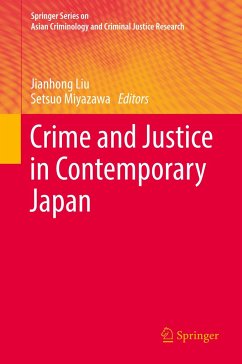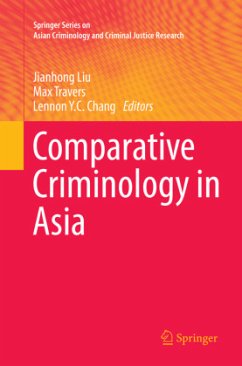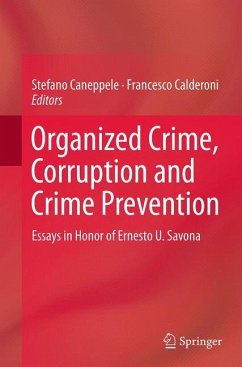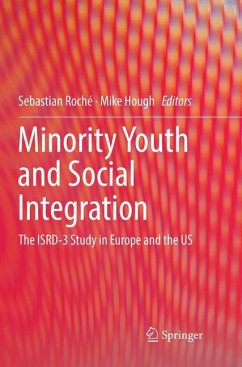
Crime and Justice in Contemporary Japan
Versandkostenfrei!
Versandfertig in 6-10 Tagen
151,99 €
inkl. MwSt.

PAYBACK Punkte
76 °P sammeln!
This book provides an important overview of key criminology and criminal justice concerns in Japan. It highlights similarities between the practice of criminology research in Japan, as well as important differences, with other areas of Asia and with the West.In previous decades, Japan attracted international attention as the only industrialized country where the crime rate declined along with a rise in urbanization and economic development. Currently, Japan still enjoys a declining crime rate (the lowest among major industrialized countries) and a study of criminal justice practices in Japan m...
This book provides an important overview of key criminology and criminal justice concerns in Japan. It highlights similarities between the practice of criminology research in Japan, as well as important differences, with other areas of Asia and with the West.
In previous decades, Japan attracted international attention as the only industrialized country where the crime rate declined along with a rise in urbanization and economic development. Currently, Japan still enjoys a declining crime rate (the lowest among major industrialized countries) and a study of criminal justice practices in Japan may provide important insights for other regions.
Japan also experiences important contemporary challenges which are shared by other regions:
1. Japan has the highest proportion of people over the age of 60 in the world. For criminology, this means key challenges in the victimization of older people, as well as the challenges of an aging prison population.
2. Besides the United States, Japan is the only developed country that still practices capital punishment, and its rate has been on the rise in the past 20 years.
3. Japan has also introduced new reforms in its law practice, including the introduction of new trial formats.
The research in this book provides a helpful overview for scholars interested in criminology and criminal justice in Japan to understand the key issues of concern, and present a framework for future research needs. It will be of interest to researchers in criminology and criminal justice, international studies, Asian Studies, sociology, and political science.
In previous decades, Japan attracted international attention as the only industrialized country where the crime rate declined along with a rise in urbanization and economic development. Currently, Japan still enjoys a declining crime rate (the lowest among major industrialized countries) and a study of criminal justice practices in Japan may provide important insights for other regions.
Japan also experiences important contemporary challenges which are shared by other regions:
1. Japan has the highest proportion of people over the age of 60 in the world. For criminology, this means key challenges in the victimization of older people, as well as the challenges of an aging prison population.
2. Besides the United States, Japan is the only developed country that still practices capital punishment, and its rate has been on the rise in the past 20 years.
3. Japan has also introduced new reforms in its law practice, including the introduction of new trial formats.
The research in this book provides a helpful overview for scholars interested in criminology and criminal justice in Japan to understand the key issues of concern, and present a framework for future research needs. It will be of interest to researchers in criminology and criminal justice, international studies, Asian Studies, sociology, and political science.












